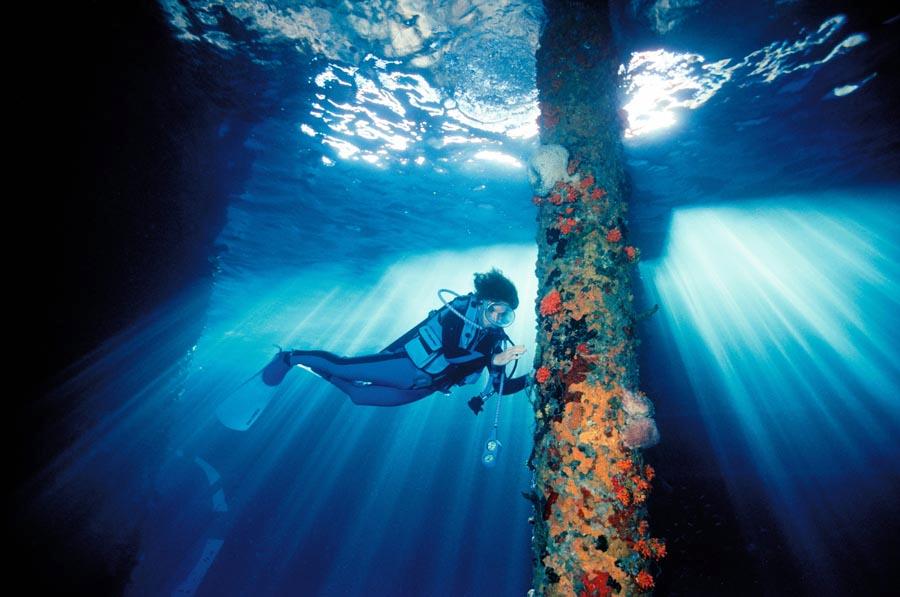
A picture taken by David Doubilet shows Sylvia Earle, who has spent over 7,000 hours under the sea and discovered many aquatic species. (Photo provided to China Daily)
International ocean experts deliver talks in Beijing about saving the seas.
Underwater photographer David Doubilet and his wife, Jennifer Hayes, were sharing stories at Ocean Talks-from an encounter with a mother seal and her son to revisiting a coral after nine years.
The U.S. couple's photos brought the audience into the Earth's tripolar regions of the Antarctic, Arctic and the Coral Triangle, showcasing the beautiful scenes and recent changes.
"Pictures have power. They have power to celebrate, and they have power certainly to humiliate," says Doubliet.
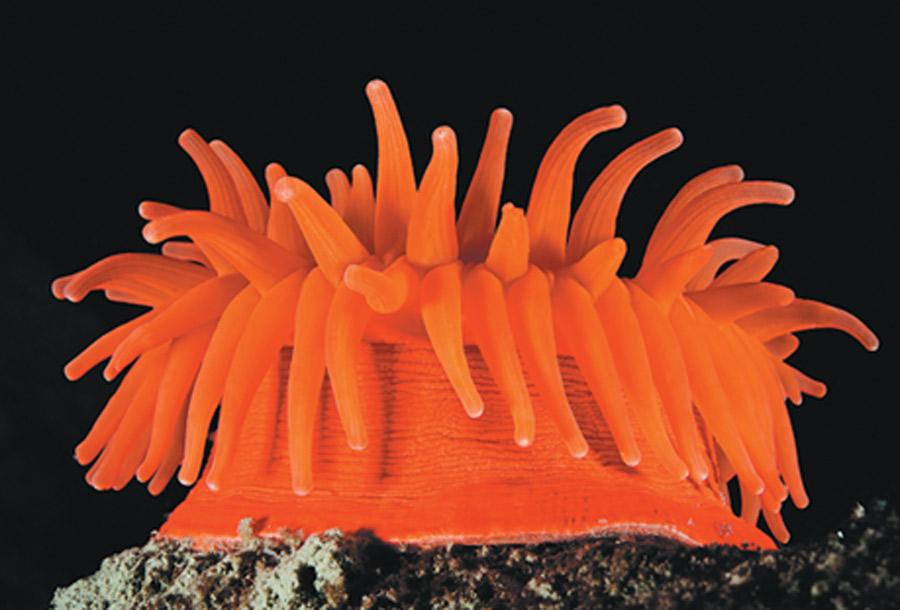
Orange Celebration, a photo taken in the Antarctic by Doubilet. (Photo provided to China Daily)
He believes photos can open people's eyes and that nature photography is as important as journalism. Ocean Talks also witnessed U.S. explorer Sylvia Earle and Singaporean Michael Aw sharing their marine experiences.
The talks were part of the celebration of the world premiere of the Elysium Epic Trilogy Exhibition that was staged in Parkview Green in Beijing from April 22 to May 6.
The exhibition displayed pictures, videos, social media posts and talks from expedition masters that show the polar regions' beauty and raise awareness of ocean conservation.
The Elysium Epic project was initiated by the Ocean Geographic Society eight years ago to record the exploration of the Earth's tripolar regions.
Earle says she is grateful to be part of the project that celebrates the natural systems that keep people alive and encourages people everywhere to protect the ocean.
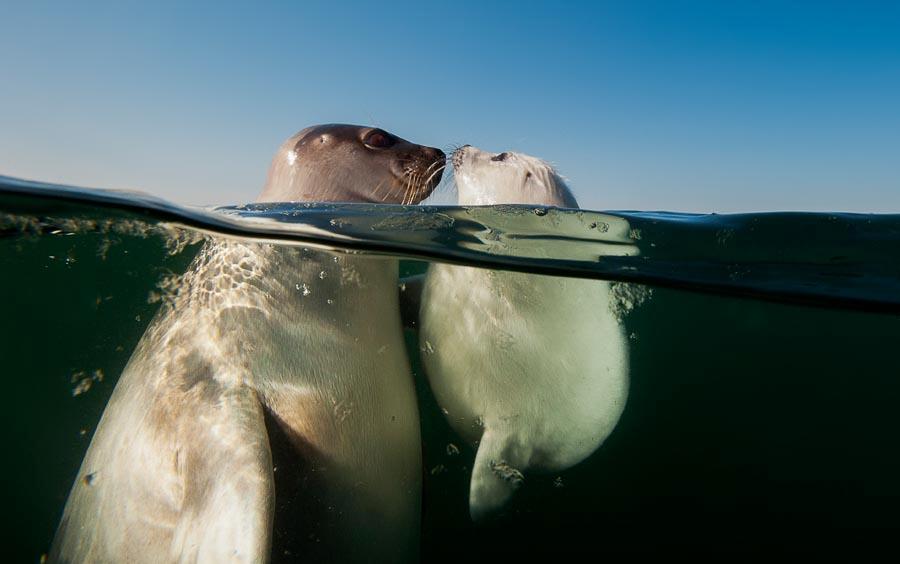
Comfort, an image from the Arctic by Jennifer Hayes. (Photo provided to China Daily)
"The dream is that this exhibition that came about as a collaboration among scientists, artists, musicians and explorers-all using their respective ways of looking and learning-and bring it together visually and in words and in music and in images. All they want is to share the view," Earle says.
Earle was born in 1935 and holds nearly 30 honorary degrees. She has lectured in over 90 countries and authored more than 200 scientific, technical and popular publications, including 13 books, such as The World Is Blue.
She has spent over 7,000 hours under the sea and discovered thousands of aquatic species. Earle has been deemed a "hero of the planet" by Time and dubbed "her deepness" by The New York Times.
"People ask me sometimes, 'What are the biggest problems facing the ocean?' Of course, it's what we are putting into the sea, what we're taking out of the ocean, but I think the biggest problem is ignorance-people do not know why they should care about the ocean," she says.
Earle recalls there were few plastics when she was a child. "These synthetic materials that have been so valuable to humans, now, we understand that there is a hidden cost," she says.
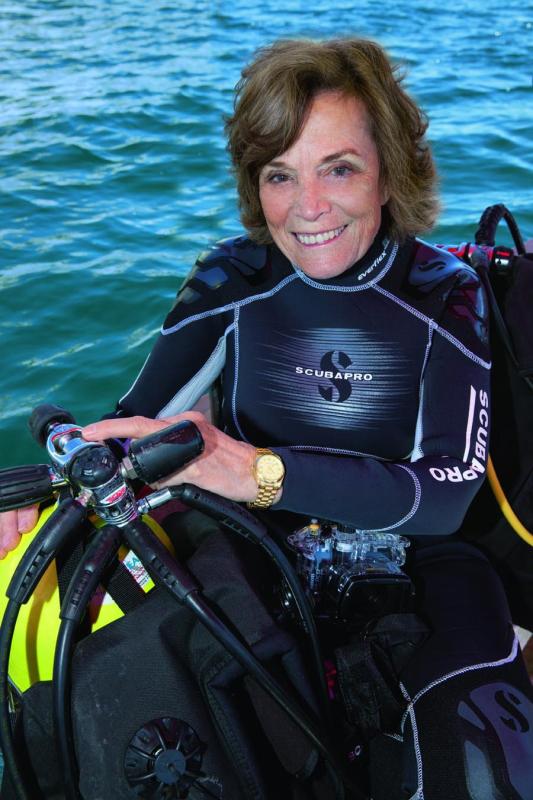
U.S. explorer Sylvia Earle (Photo provided to China Daily)
"We must protect nature, particularly the ocean, as if our lives depend on it because they do. And to do that means learning from the past that, where we really protect nature, recovery can occur. We see it in parks and under water."
In 2010, Earle initiated Mission Blue, a nonprofit to protect and explore the Earth's oceans. Her idea for the foundation is to explore and define nature with technology and share the view as widely as possible.
Earle first visited China in 1973. She believes the country and world have since changed dramatically.
She's impressed with China's leadership in technology from the deep sea to the far side of the moon and its understanding of the limits of the environment.
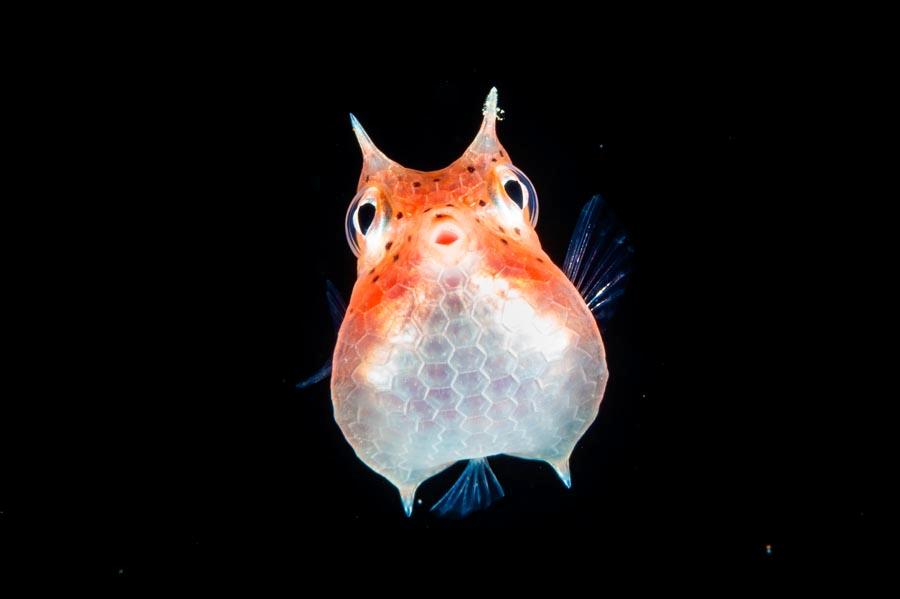
Toy, at the Coral Triangle, by Hayes. (Photo provided to China Daily)
The opening day of the exhibition was also the 50th Earth Day, with the theme "protect our species".
The planet has already lost many species, she points out. Half of the coral reefs are gone, as are 90 percent of sharks, she says.
"We did not know the loss of coral reefs, ice, sharks and tunas could matter to humans, but now we know. That's the good news," says Earle.
With knowing comes caring, and with caring comes hope. Earle hopes people make the shift to protect the natural world-to care for trees for more than turning them into timber, to look at fish as more than just something to eat because they're part of the natural web of life that keeps humans alive.
"We have taken from the ocean, from nature throughout all of our history," she says.
"Why not let this be a time when we deliberately, proactively make an effort and make a commitment to give back?"

















